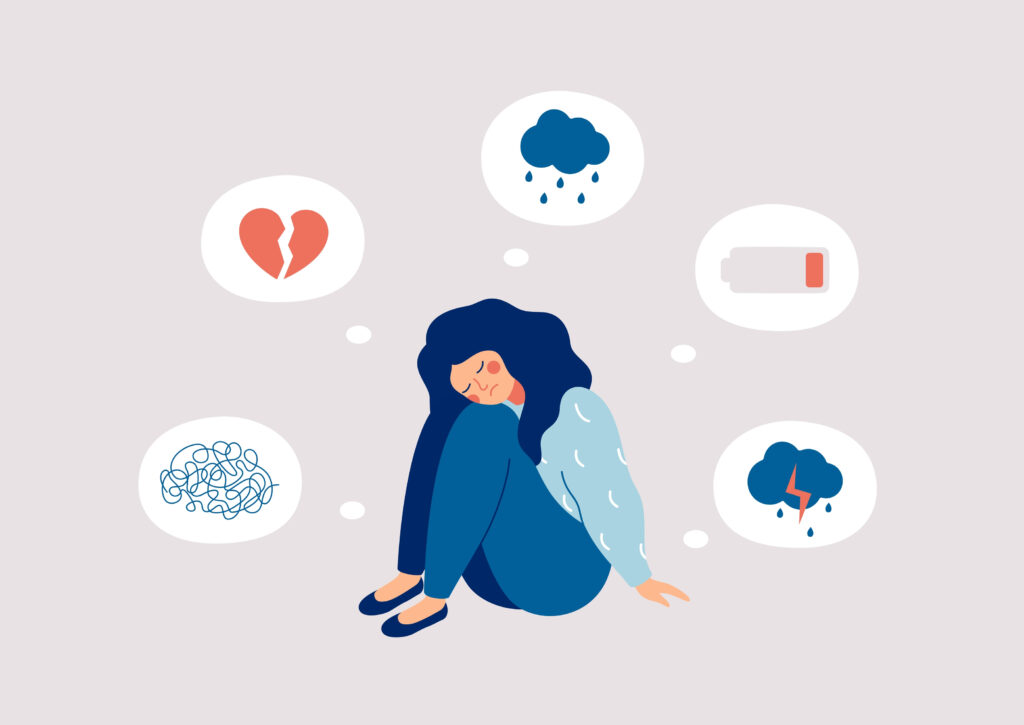Overview
Nigeria has the highest caseload of patients with depression in Africa.
Everyone experiences changes in mood and short periods of emotional response to difficulties in their everyday lives. Depression is different – it is evidenced by experiencing low mood with more severe intensity and can occur over a longer period of time.
Key Facts
- Depression is a common mental disorder
- It affects how you feel, think and behave
- There are effective treatments for moderate and severe depression
- More women are affected by depression than men
Symptoms
You can experience a wide range of psychological symptoms, which affect how you feel and behave as well as having impact on your physical well-being.
Psychological symptoms of depression can include:
- Continuous low moods or sadness
- Feeling hopeless and helpless
- Having low self-esteem
- Feeling tearful
- Feeling irritable and intolerant of others
- Having no motivation or interest in things
- Finding it difficult to make decisions
Physical symptoms can include:
- Changes in appetite or weight (usually decreased, but sometimes increased)
- Lack of energy
- Low sex drive
- Changes to your sleep pattern – for example, finding it difficult to fall asleep at night or waking up very early in the morning
Diagnosis
To diagnose you, your doctor will ask you questions about your general health, how you are feeling about life in general as well as any significant changes in your life that you may be going through.
Try to be as open and honest as you can as that will help your doctor diagnose you and work with you on potential treatment options.
Causes
Depression can be brought on by changes in lifestyle or circumstances such as:
- Stressful events
- Loneliness
- Personality
- Family history
- Other illness
- Giving birth
- Alcohol and drugs usage
Prevention
It is hard to identify what exactly triggers depression, which means it is harder to proactively prevent it.
However, it is known that having a healthy lifestyle has a positive impact on your overall mental health so it is good to ensure that you:
- Regularly exercise
- Get enough sleep
- Reduce stress
- Have good, strong relationships with those who are important in your life
Typical Treatments
Treatment will depend on your exact circumstances and symptoms. You may also need to try different methods, in agreement with your doctor, to best manage the symptoms. The treatment methods can include:
Medications such as:
- Antidepressants
- Anti-anxiety medications
- Anti-psychotic medications
Psychotherapy
Speaking with a therapist can also help you learn skills to cope with negative feelings.
Taking overall care of yourself
You can also reduce the impact of any depression symptoms by taking care of yourself through getting plenty of sleep, eating a healthy diet, and participating in enjoyable activities.
Conclusion
Depression can be temporary or a longer-term challenge.
Treatment does not always make depression go away completely but it can make the symptoms manageable.
MOST COMMON







